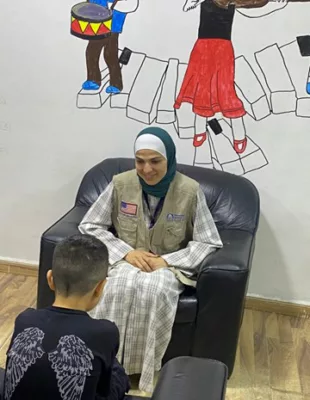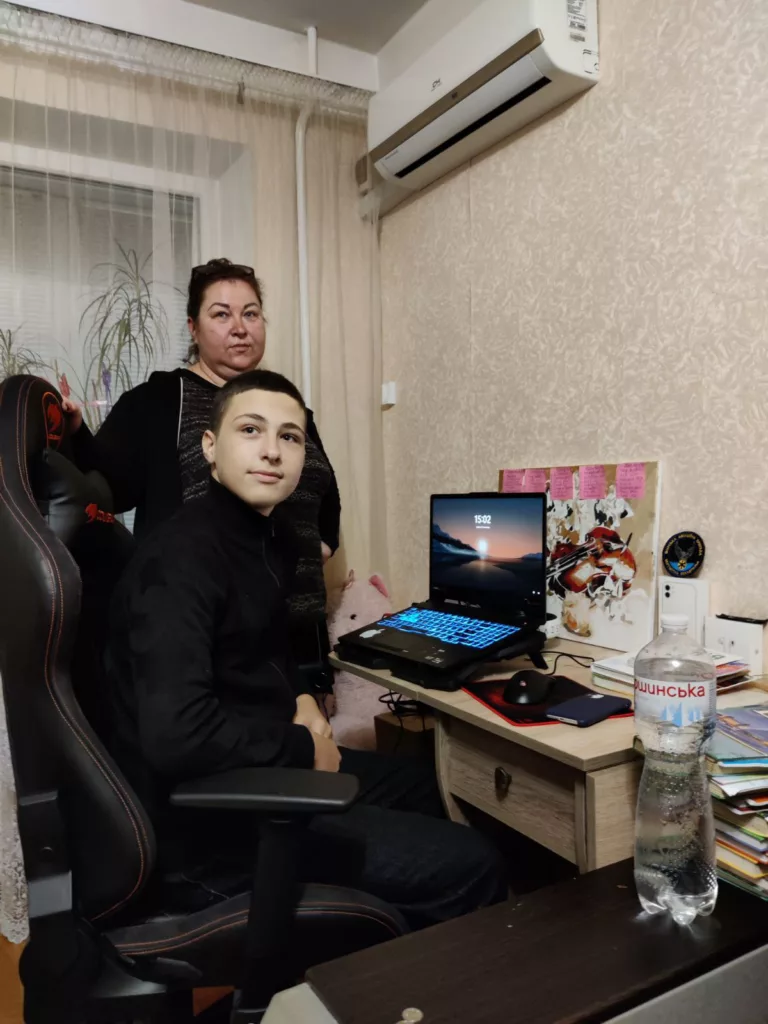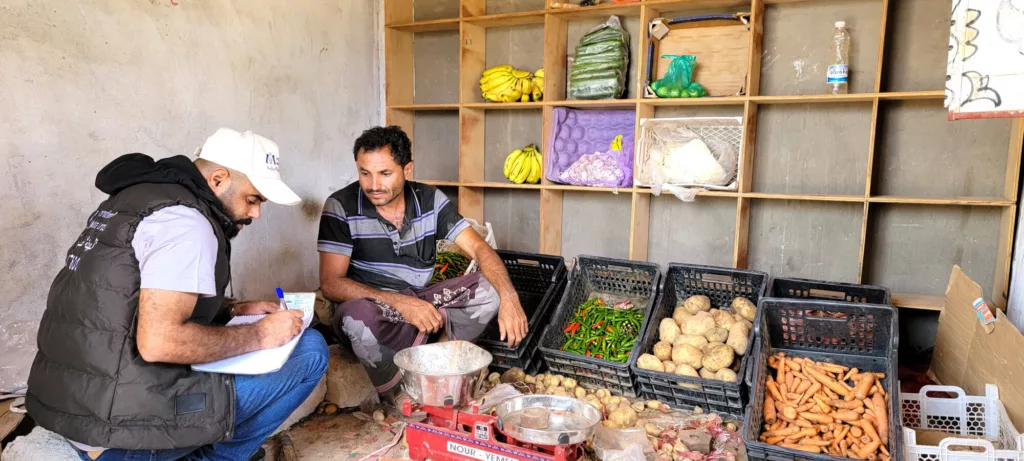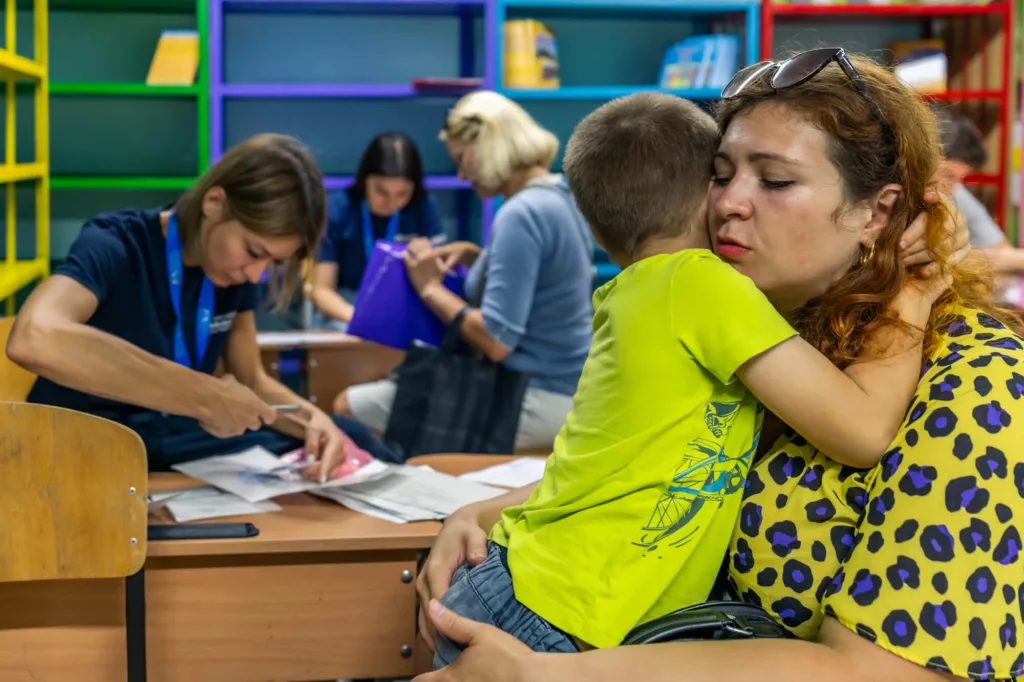When Khaled returns home from working long shifts at the car painting shop, he’s greeted by the seven younger siblings he provides for. Their house is run-down and has only basic furniture. There’s not enough food to feed them all—or even enough warm clothes for the winter.
Khaled is only 13 years old. A Syrian refugee living in Jordan, he left school and started working when his mother became ill in 2021. Then she passed away in 2022 and his father was arrested. After that, all the responsibility for providing for his siblings and grandmother fell on his small shoulders. He’s exhausted at the end of every day after working long hours in the shop where he says the owner bullies him. He has no time for school or friends.
Between 2008 and 2017, the number of child laborers in Jordan more than doubled . Many, like Khaled, were refugees fleeing Syria’s civil war. Refugee children are often forced into informal work because their families have been separated from their livelihoods but are restricted from working legally in their host countries. The impact on children can be devastating—conditions are often dangerous, and leaving school stunts their social and intellectual growth. They may get trapped in a cycle of poverty: children who leave school to work are 30% more likely to be poor in later life.

Everything changed when Khaled met Noor, a Case Manager doing outreach as part of International Medical Corps’ Child Protection team. After visiting his family’s home and listening to Khaled’s story, she created a care plan and referred him to psychosocial support services to improve his confidence. She also referred Khaled’s family to the United Nations High Commissioner for Refugees (UNHCR), which provides monthly cash payments to Jordan’s poorest and most vulnerable refugees. Until these payments began, Noor and the International Medical Corps team helped Khaled’s family get cash assistance from the US government’s Bureau for Population, Refugees and Migration.
The money was life-changing. Now, Khaled’s family can afford the food and winter clothes they need. He has left his job and returned to school. “Khaled was bearing his family responsibility from a young age,” his grandmother told our team. “It is only fair that he breaks free and enjoys his childhood.”
Cash and voucher assistance programs—which give people money or vouchers for goods and services—are an area of humanitarian aid that has grown rapidly in recent years. Such programs nearly doubled between 2016 and 2022, according to the CALP Network, with cash and voucher assistance programs accounting for 21% of all humanitarian aid by the end of 2023.
“International Medical Corps first adopted cash-based programming in 2018 to ensure the effectiveness and efficiency of our humanitarian response as we work to reach the most vulnerable populations,” explains Mateen ul Hassan Khan. Working as a Global Food Security and Livelihoods Advisor, Mateen has seen the program’s benefits firsthand.
“The use of a cash-based program enables people to determine and meet their own needs according to their preferences and likes,” Mateen says. “It also has benefits for the local economy. When we provide cash, people are able to buy and sell more in the area, which ultimately encourages local production, employment and income-generating opportunities.”
For people living through conflict, cash assistance can be a lifeline. “Cash provides freedom of choice and the ability to secure basic rights—especially for women and children,” says Mateen.
But escaping child labor isn’t the only way that cash assistance helps children living through conflict.

In the city of Mykolaiv, Ukraine, the residents have experienced repeated air strikes, bombings and assaults by Russian forces since February 2022. The attacks aren’t the only source of danger, however. For 14-year-old Illya, who lives with a rare genetic condition called Gaucher’s disease, the war has made it almost impossible to get the medication that prevents his disease from developing life-threatening complications.
When Illya’s medication ran out, his family had little hope. There was no government support to help get the medication, and his mother didn’t have enough money to buy it in bulk or travel elsewhere.
Then International Medical Corps stepped in. Working with the Mykolaiv Regional Department of Health, we identified people living with chronic diseases and provided them with money for their treatment. Thanks to cash assistance, Illya and his mother were finally able to purchase a long-term supply of medication for his condition.
In addition to supporting Illya’s family, we have provided more than $1.1 million in cash assistance to Ukrainians. The money is going to the most vulnerable people in conflict zones and liberated areas, enabling Ukrainians to buy the supplies they need or pay off the debts they’ve incurred in trying to survive.
Cash assistance is most necessary in the areas near the front lines—but amid the attacks, gathering crowds to register for assistance is dangerous. So our team worked with Ukraine’s Ministry for Social Protection to find locations with underground shelters where we could register people safely.
“A crowd of people was already waiting for us,” remembers Dymtro Mykhailov, an International Medical Corps Field Communications Officer who attended a registration event in Zaporizhzhia in August 2023. “After a short time, somewhere in the area, we heard anti-aircraft defense. It was very loud, and, in a matter of seconds, everyone who was in the open area proceeded to the shelters, where the distribution itself was carried out.”
“After receiving help, people were more joyful and less anxious,” Dymtro says. Families were able to use the money to buy essential items such as food and hygiene supplies, fix their homes after damage from Russian attacks, or even access the medical treatment and care they needed.
However, even after the noise of anti-aircraft defense subsided and families emerged from the shelter to the warm and sunny day outside, the mood remained serious. After living through the occupation of the area, the continued attacks mean that their suffering is far from over.

Baby Kholoud wasn’t eating. She was having trouble breathing. Her parents Amin and Smiha were terrified—they didn’t know how to help their youngest daughter. They’d struggled to make ends meet after the civil war disrupted their farming and drove many of their neighbors away from the small village of Al Aqla. Even if they could find the money, their nearest health center didn’t have the resources to treat Kholoud.
When the International Medical Corps mobile medical team made a routine visit to Al Aqla, team members quickly realized that Knoloud was acutely malnourished. They sent her to a health facility in Khilah where we support health and nutrition services. After a month of being nursed back to health, Kholoud was ready for discharge.
That wasn’t the end of the story for Kholoud’s family, however. Through the cash assistance program for families with children suffering from acute malnutrition, we provided six monthly payments of $123 to Amin and Samiha. The money supported Kholoud’s full recovery, with cash left over for Amin to finally start his dream business: a fruit and vegetable shop. With the shop nearby, villagers can now buy fresh fruits and vegetables without having to travel an hour to the capital, Sana’a, and the family now has a reliable source of income.
“I can’t express my gratitude to International Medical Corps,” said Amin. “This shop was a dream come true. I can now sleep in peace and provide my children with three meals daily.”
To help us provide cash assistance as well as other services for people in need around the world, donate to International Medical Corps today.
